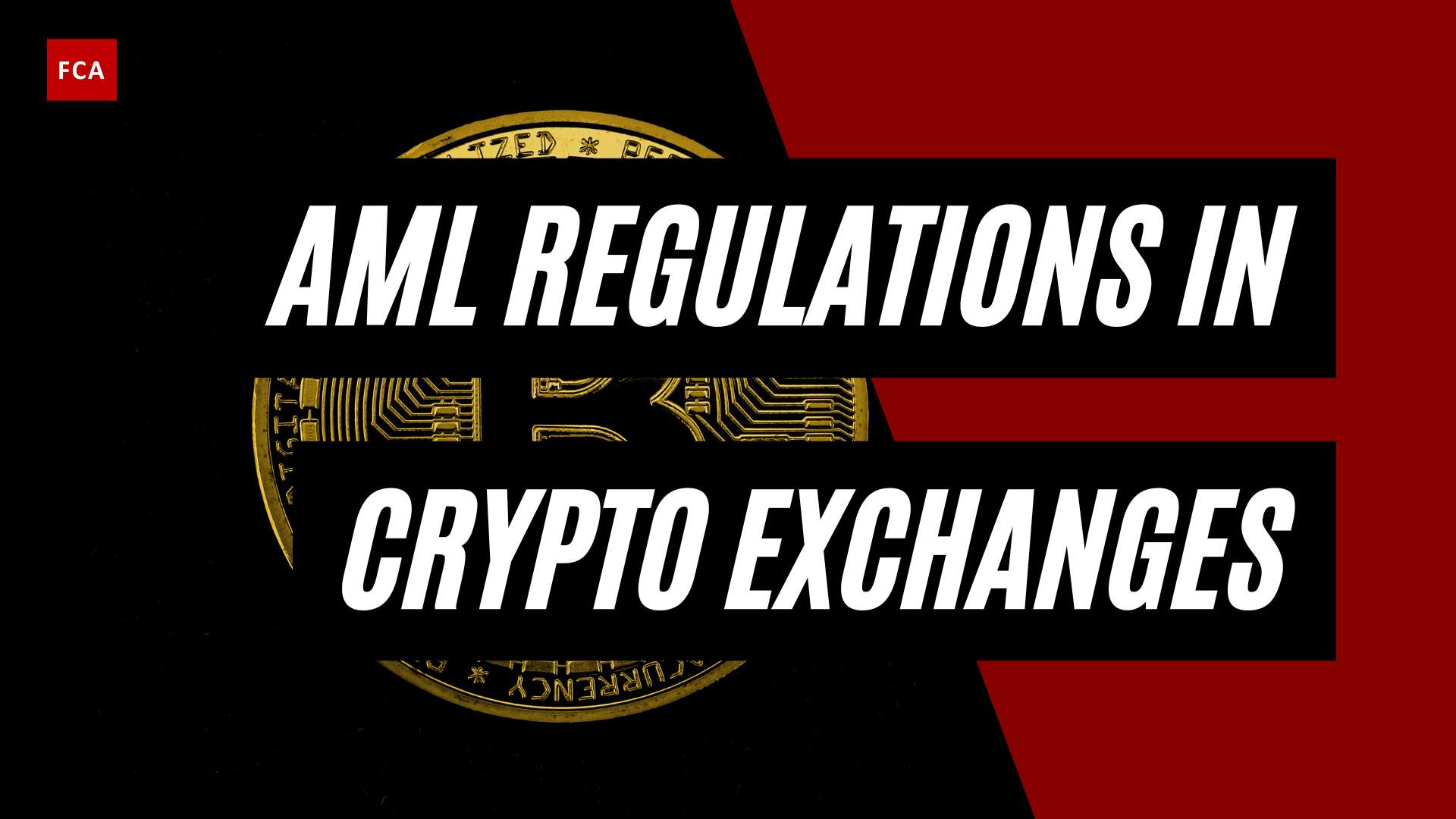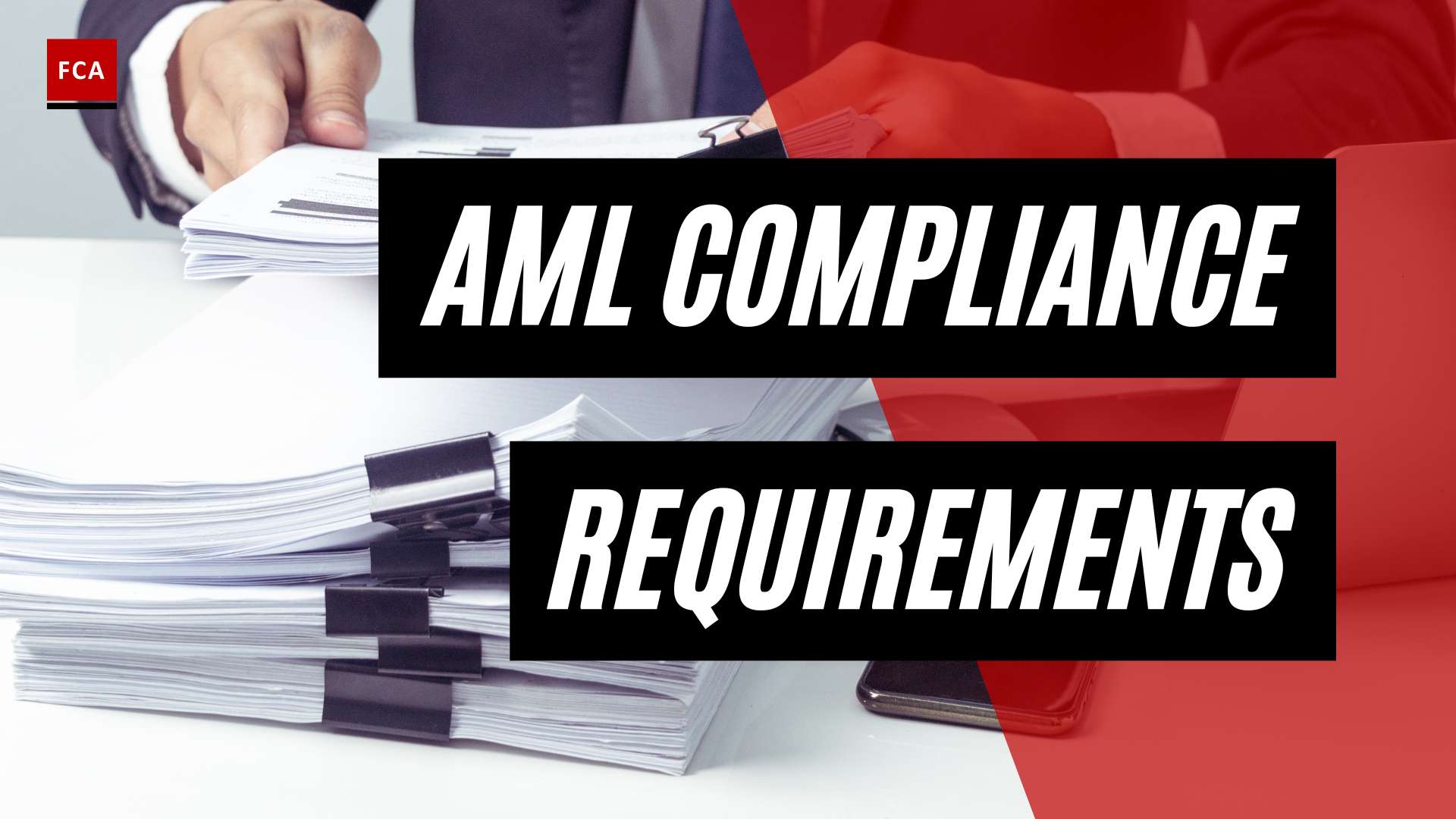AML Career Opportunities
When it comes to AML (Anti-Money Laundering) career paths, there are various opportunities available for professionals in the compliance, risk management, anti-money laundering, and anti-financial crime fields. This section provides an overview of AML career paths, in-demand AML certifications, and salary trends in AML careers.
Overview of AML Career Paths
AML career paths encompass a range of roles and responsibilities in various industries. Professionals in this field play a crucial role in preventing and detecting financial crimes, ensuring compliance with regulations, and safeguarding the integrity of financial systems. Some common AML career paths include:
- AML Analyst: AML analysts are responsible for monitoring financial transactions, conducting investigations, and identifying potential money laundering activities. They play a vital role in risk assessment and ensuring compliance with AML regulations.
- AML Investigator: AML investigators delve deeper into suspicious activities identified by AML analysts. They conduct thorough investigations, gather evidence, and collaborate with law enforcement agencies when necessary.
- AML Compliance Officer: AML compliance officers develop and implement AML policies and procedures within organizations. They ensure that businesses adhere to AML regulations, conduct risk assessments, and provide training to employees.
These are just a few examples of the diverse career paths available in the AML field. The industry offers ample opportunities for growth and specialization, allowing individuals to carve out a rewarding career.
Salary Trends in AML Careers
Salary trends in AML careers vary based on factors such as experience, job role, industry, and location. According to Indeed, the average salary for an AML compliance officer in the United States is around $70,000 per year. However, it’s important to note that salaries can vary significantly depending on the organization and level of responsibility.
For AML professionals with extensive experience and expertise, the earning potential can be even higher. The highest-paid AML compliance officers in the United States can earn as much as $100,000 per year (Indeed).
It’s essential to note that salary trends can also be influenced by factors such as industry demand, geographical location, and the complexity of the AML role. It’s advisable to conduct thorough research and consider various factors when evaluating salary expectations in the AML field.
In conclusion, AML career opportunities offer a range of paths for professionals looking to make a difference in combating financial crimes. By obtaining in-demand certifications and staying updated with industry trends, individuals can enhance their skills and increase their earning potential in the AML field.
AML Recruitment Trends
In the ever-evolving field of Anti-Money Laundering (AML), staying aware of the latest recruitment trends is crucial for professionals seeking opportunities and growth in their careers. This section will explore the current job market for AML analysts, the growing demand for AML professionals, and the emergence of new technologies in the AML sector.
Current Job Market for AML Analysts
The job market for AML analysts is promising, with numerous opportunities available for skilled professionals. As of October 2021, there were nearly 500 job openings for AML analysts across the United States alone, according to data from Indeed.com (Indeed). This indicates a strong demand for individuals with expertise in AML compliance, risk management, and financial crime prevention.
To maximize your chances of securing a position in the AML field, it is essential to stay updated on the latest industry regulations, trends, and technologies. Acquiring relevant certifications, such as AML certifications, can also enhance your marketability and demonstrate your commitment to professional development.
Growing Demand for AML Professionals
The demand for AML professionals is expected to continue growing in the coming years. Regulatory scrutiny surrounding financial crimes and money laundering is increasing, prompting organizations across various industries to strengthen their AML frameworks and compliance programs. This, in turn, fuels the need for skilled AML professionals who can effectively navigate complex regulations and detect and prevent financial crimes.
According to data from Indeed.com, the AML sector in the United States is projected to grow by 19% by 2026, creating over 8,800 new job opportunities in Anti Money Laundering (AML) and Combating the Financing of Terrorism (CFT) (Pideeco). Similarly, in the United Kingdom, the number of job posts related to AML and CFT grew by 225% from 2015 to 2020, indicating a significant demand for professionals in this field (Pideeco).
To capitalize on the growing demand for AML professionals, it is crucial to continuously develop your skills, keep abreast of industry trends, and pursue professional qualifications that align with your career goals. Exploring AML job openings and leveraging AML recruitment agencies can also be beneficial in finding relevant opportunities.
Emerging Technologies in AML
Technological advancements are reshaping the AML landscape, making it imperative for professionals to embrace and adapt to these changes. A study conducted by ACAMS in 2020 revealed that 85% of AML professionals believe that their roles will be augmented by technology in the coming years (Pideeco). This highlights the increasing importance of technology in the AML sector and the need for professionals to develop competencies in areas such as data analytics, artificial intelligence, and machine learning.
Emerging technologies, such as robotic process automation (RPA), natural language processing (NLP), and blockchain, are being increasingly integrated into AML systems and processes. These technologies streamline compliance procedures, enhance risk detection capabilities, and improve the efficiency of investigations. AML professionals who possess knowledge and skills in these areas will be well-positioned to thrive in their careers.
Staying updated on emerging technologies and their applications in AML is essential for professional growth and to remain competitive in the job market. Organizations are actively seeking individuals who can leverage these technologies to enhance AML compliance and mitigate financial crime risks.
As the AML field continues to evolve, professionals who adapt to recruitment trends, develop their expertise, and embrace emerging technologies will have a distinct advantage in securing rewarding and impactful roles within the industry.
Skills and Qualifications for AML Careers
To excel in AML careers, professionals need to possess a specific set of skills and qualifications. These requirements ensure that individuals are equipped to combat financial crimes, such as money laundering, and navigate the complex landscape of regulatory compliance. In this section, we will explore the key skills for AML professionals, the essential knowledge in AML regulations, and the advancement opportunities available in the field.
Key Skills for AML Professionals
AML professionals require a combination of skills to effectively carry out their responsibilities. Some of the key skills that are highly valued in the industry include:
- Analytical Skills: AML professionals need to have strong analytical skills to identify patterns, anomalies, and suspicious activities within financial transactions. The ability to analyze large volumes of data and recognize potential risks is crucial in detecting and preventing money laundering.
- Attention to Detail: Given the intricacies of financial transactions, attention to detail is paramount. AML professionals must be meticulous in their work, ensuring that no red flags or suspicious activities go unnoticed. The ability to spot even the smallest discrepancies or irregularities is essential for effective AML compliance.
- Knowledge of Financial Regulations: A thorough understanding of AML regulations and requirements is essential for AML professionals. Staying up-to-date with the evolving regulatory landscape enables professionals to implement effective compliance measures and ensure adherence to legal frameworks.
- Communication Skills: AML professionals must possess strong communication skills to interact with internal teams, regulators, and law enforcement agencies. Clear and concise communication is vital when reporting suspicious activities, collaborating with stakeholders, and conveying complex AML concepts to non-experts.
- Technology Proficiency: In today’s digital age, technology plays a significant role in AML. AML professionals need to be proficient in using AML software programs, data analytics tools, and other technological solutions to enhance their efficiency and effectiveness in detecting and preventing money laundering activities.
These skills, combined with a strong ethical mindset and a commitment to upholding integrity, form the foundation for AML professionals to succeed in their careers.
Essential Knowledge in AML Regulations
A comprehensive understanding of AML regulations is crucial for AML professionals to carry out their roles effectively. Professionals need to be well-versed in regulations specific to their jurisdiction, such as the Bank Secrecy Act (BSA) in the United States or the European Union’s Fifth Anti-Money Laundering Directive (5AMLD).
Knowledge of relevant regulations enables professionals to develop and implement robust AML programs, conduct risk assessments, and ensure compliance with reporting obligations. It also allows them to stay ahead of emerging trends and regulatory changes, ensuring that their organizations remain proactive in their AML efforts.
Advancement Opportunities in AML
AML offers a multitude of advancement opportunities for professionals in the field. As AML regulations continue to evolve, organizations are placing greater emphasis on AML compliance and risk management. This increased focus creates a demand for experienced AML professionals who can navigate the complexities of the field.
Career progression in AML can take various paths, including:
- Management Positions: AML professionals can advance to managerial roles, such as AML compliance managers or AML program managers. These positions involve overseeing AML programs, developing policies and procedures, and providing guidance to compliance teams.
- Specialized Roles: Professionals can choose to specialize in specific areas of AML, such as transaction monitoring, investigations, or advisory services. Specialization allows professionals to develop expertise in specific aspects of AML and contribute to the organization’s overall AML efforts.
- Consulting Opportunities: AML consultants provide advisory services to organizations, assisting them in developing and implementing effective AML processes, conducting risk assessments, and ensuring regulatory compliance. Consulting roles offer the opportunity to work with a diverse range of clients and contribute to the broader AML community.
- Advanced Certifications: Pursuing advanced certifications, such as the Certified Anti-Money Laundering Professional (CAMP) certification, can enhance career prospects and open doors to new opportunities. These certifications validate expertise in the field and demonstrate a commitment to professional development.
By continuously honing their skills, staying abreast of regulatory changes, and seeking out opportunities for growth, AML professionals can advance their careers and make meaningful contributions to the fight against financial crimes.
In the next section, we will explore the industries and sectors that offer promising AML career opportunities, providing professionals with diverse paths to pursue their passion for AML.
Industries and Sectors with AML Career Opportunities
The field of Anti-Money Laundering (AML) offers a wide range of career opportunities across various industries and sectors. Professionals with expertise in AML play a crucial role in preventing financial crimes and ensuring compliance with regulations. Let’s explore some of the industries and sectors that provide promising AML career prospects.
AML Careers in Banking and Financial Institutions
Banking and financial institutions are among the primary sectors that offer extensive AML career opportunities. These institutions require AML professionals to work in compliance, risk management, fraud prevention, and other related areas. AML analysts, for instance, are responsible for investigating potential instances of fraud and ensuring compliance with regulations such as the Bank Secrecy Act, USA PATRIOT Act, and OFAC regulations (ZipRecruiter).
Working in banking and financial institutions allows individuals to develop a deep understanding of financial transactions, identify suspicious activities, and implement measures to prevent money laundering. The AML career path in this sector offers opportunities for growth and advancement, with the potential to move into roles such as Senior AML Analyst or AML Compliance Manager.
AML Opportunities in Government Agencies
Government agencies, including regulatory bodies and law enforcement agencies, are actively involved in combating financial crimes and enforcing AML regulations. These agencies offer diverse AML career opportunities, focusing on areas such as investigations, enforcement, policy development, and collaboration with other agencies.
Working in government agencies provides professionals with the chance to make a significant impact in the fight against money laundering and the financing of illicit activities. AML professionals in these sectors work closely with other government entities, financial institutions, and international partners to ensure effective AML practices and safeguard the integrity of the financial system.
AML Roles in Insurance Companies
Insurance companies also present AML career opportunities for individuals interested in combating financial crimes. AML professionals in insurance companies play a critical role in risk assessment, fraud detection, and ensuring compliance with regulations. They collaborate with internal teams and external stakeholders to identify suspicious activities, investigate claims, and protect the company and its customers from financial crimes.
The insurance industry offers a unique perspective on AML, as it involves working with policies, claims, and client information. AML professionals in this sector must possess a strong understanding of AML regulations, risk assessment techniques, and investigative skills.
By exploring AML careers in banking and financial institutions, government agencies, and insurance companies, individuals can identify the sector that aligns with their interests and career goals. These industries provide diverse opportunities to contribute to AML efforts, protect financial systems, and combat money laundering and financial crimes effectively.
AML Job Types and Responsibilities
When it comes to AML career opportunities, there are various job types available in the field. Each job type comes with its own set of responsibilities and plays a crucial role in preventing financial crimes, such as money laundering. In this section, we will explore three key AML job types: AML Analysts, AML Investigators, and AML Compliance Officers.
AML Analysts: Roles and Responsibilities
AML Analysts are responsible for investigating potential instances of fraud and ensuring compliance with regulations such as the Bank Secrecy Act, USA PATRIOT Act, and OFAC regulations. Their role is crucial in preventing money laundering activities. The primary responsibilities of AML Analysts include:
- Conducting thorough investigations into suspicious transactions and activities.
- Analyzing large volumes of data to identify patterns and anomalies that may indicate potential money laundering.
- Preparing and filing suspicious activity reports (SARs) with regulatory authorities.
- Collaborating with law enforcement agencies and other AML professionals to gather necessary information for investigations.
- Staying up-to-date with AML laws and regulations to ensure compliance.
- Assisting in the development and implementation of AML policies and procedures.
AML Investigators: Roles and Responsibilities
AML Investigators play a critical role in identifying and stopping illegal financial activities. They are responsible for conducting in-depth investigations into suspicious activities, filing reports with regulatory authorities, and working closely with law enforcement agencies. The key responsibilities of AML Investigators include:
- Conducting detailed investigations into potential money laundering activities and financial crimes.
- Analyzing complex financial transactions and patterns to identify suspicious activities.
- Coordinating with internal teams, such as compliance and legal departments, to gather relevant information.
- Preparing and submitting reports on suspicious activities to regulatory authorities.
- Assisting in the development of strategies to combat money laundering and financial crimes.
- Keeping abreast of emerging trends and new techniques employed by money launderers.
AML Compliance Officers: Roles and Responsibilities
AML Compliance Officers are responsible for developing and implementing policies, procedures, and systems to prevent money laundering and comply with regulatory requirements. They work closely with internal teams, regulators, and law enforcement agencies to ensure the organization’s adherence to AML laws and regulations. The primary roles and responsibilities of AML Compliance Officers include:
- Designing and implementing AML compliance programs to ensure adherence to regulatory requirements.
- Conducting risk assessments and implementing appropriate controls to mitigate money laundering risks.
- Providing training and guidance to employees on AML policies and procedures.
- Conducting periodic audits and reviews to assess the effectiveness of AML controls.
- Collaborating with regulatory authorities during AML audits and examinations.
- Staying updated with changes in AML laws and regulations and ensuring organizational compliance.
These are just a few examples of the various job types and responsibilities within the AML field. Other roles, such as AML Transaction Monitoring Analysts, also play a crucial role in detecting and preventing money laundering activities within financial institutions. Regardless of the specific job type, individuals working in AML careers require a deep understanding of AML regulations, strong analytical skills, and a commitment to upholding integrity and ethics in financial systems.
To excel in an AML career, professionals often pursue AML certifications and professional qualifications that equip them with the necessary knowledge and skills to combat financial crimes effectively. The demand for AML professionals continues to grow, driven by increasing regulatory scrutiny and the need for companies to combat money laundering activities. As the AML industry expands, the opportunities for career advancement and specialization within the field also increase.
AML Career Outlook
As the world becomes more focused on combating financial crimes, the demand for professionals in the Anti-Money Laundering (AML) field continues to grow. Understanding the projected growth, factors driving career opportunities, and future trends in AML compliance is crucial for individuals looking to build a successful career in this field.
Projected Growth of AML Industry
The AML industry is expected to experience significant growth in the coming years. In the United States alone, the sector is projected to grow by 19% by 2026, creating over 8,800 new job opportunities in Anti-Money Laundering (AML) and Combating the Financing of Terrorism (CFT) (Pideeco). This growth is driven by increasing regulatory scrutiny and the need for companies to combat financial crimes.
Factors Driving AML Career Opportunities
Several factors contribute to the growing demand for AML professionals. One of the primary drivers is the regulatory environment, with governments and regulatory bodies worldwide implementing stricter measures to prevent money laundering and combat financial crimes (Indeed). This heightened focus on AML compliance creates a need for skilled professionals who can navigate complex regulations and ensure organizations remain compliant.
Furthermore, the rise of new technologies, such as blockchain and cryptocurrencies, has introduced new challenges related to AML. Experts who can navigate these technologies and ensure compliance with regulations are in high demand, opening up new career opportunities in this specialized area (Pideeco).
Future Trends in AML Compliance
The future of AML compliance lies in the integration of technology to detect and prevent financial crimes. Innovative solutions, such as artificial intelligence, machine learning, blockchain, and biometrics, are emerging in the AML landscape, promising to revolutionize compliance practices (LinkedIn).
Data analytics and machine learning are playing a significant role in AML compliance. Machine learning algorithms can analyze vast amounts of data to identify patterns and detect suspicious transactions, improving the accuracy of risk assessments and reducing false positives (LinkedIn). Additionally, the use of blockchain technology is gaining traction in AML compliance, offering enhanced transparency and traceability in financial transactions.
As technology continues to evolve, AML professionals will need to stay updated with the latest trends and acquire the necessary skills to leverage these technologies effectively.
By staying informed about the projected growth of the AML industry, the factors driving career opportunities, and the future trends in AML compliance, individuals can position themselves for success in this dynamic and challenging field. Embracing ongoing learning, obtaining relevant certifications, and staying updated with industry developments will be essential for professionals looking to power up their careers in AML.








